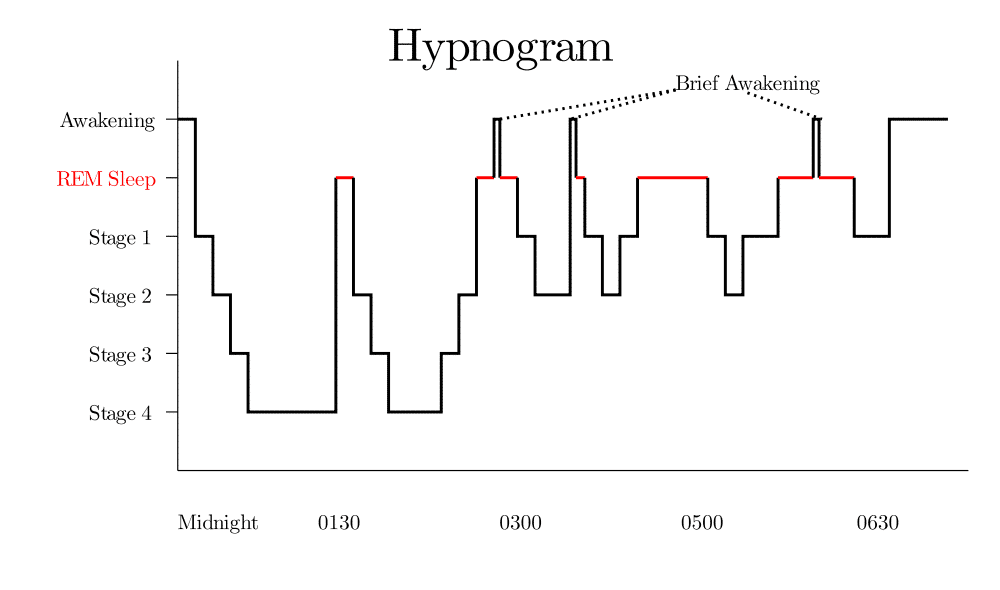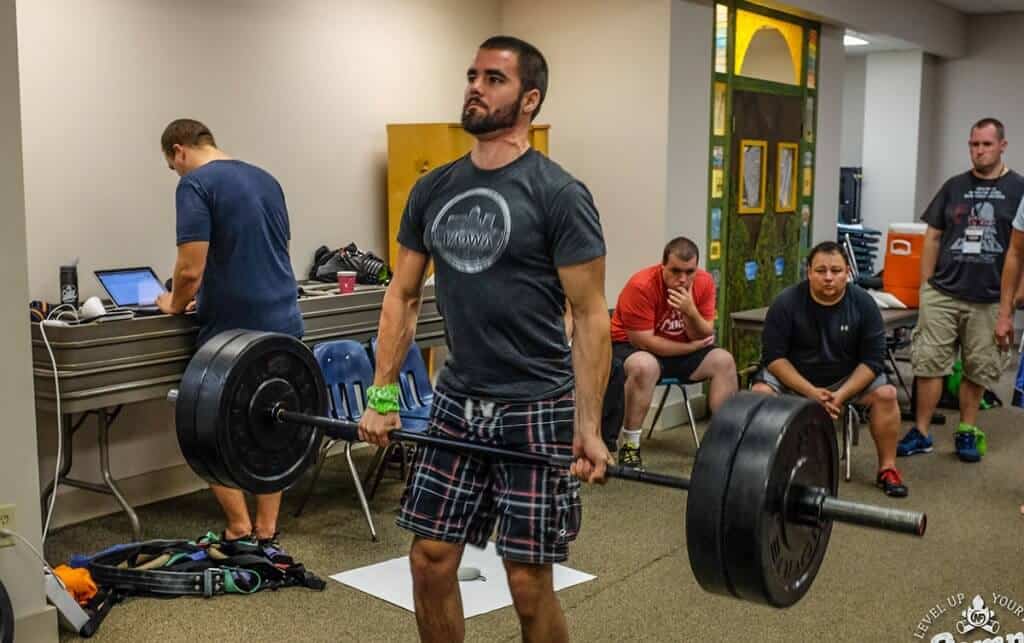You and I both know that the one difference between you and people like J.K. Rowling and Elon Musk isn’t your smarts, isn’t your motivation, and isn’t even your work ethic.
The only difference between you and them is that you’re constantly tired, right? If not for that one teensy little difference, you’d easily be able to crank out a couple chapters of the next great american novel each morning before heading out to fight crime. And lesser tasks – like studying for exams and not subsisting entirely off of Totino’s pizza rolls – would be trivially easy.
But, as it stands, you can’t do those things because you are basically a zombie. Well, maybe not a literal zombie, like in that one episode of Space Dandy – but the similarities are mounting. You feel sluggish, you’ve got bags forming under your eyes, and then there is that inexplicable craving for raw meat…
But, more importantly, you just don’t have the energy to do the things you want to do. So today I want to explore some methods for breaking that cycle of constant tiredness.
Before I get started, I do want to mention that I’m not talking about conditions like Chronic Fatigue Syndrome and SEID, which affect several million people here in the US alone and are very hard to cure.
What I AM talking about is that general state of tiredness that affects many, many more people, and which can be entirely prevented by adopting some healthier habits – chief among them being to get better sleep.
Respect Your Body’s Sleep Cycle
Now you’ve probably seen the recommendations from the National Sleep Foundation about how many hours of sleep per day you should be getting based on your age. If you haven’t, here’s a quick recap:
- Newborn (0-3 months): 14-17 hours
- Infant (4-11 months): 12-15 hours
- Toddler (1-2 years): 11-14 hours
- Preschool (3-5 years): 10-13 hours
- School Age (6-13 years): 9-11 hours
- Teenager (14-17 years): 7-9 hours
- Young Adults (18-25 years): 7-9 hours
- Adult (26-64 years): 7-9 hours
- Older Adult (65 years and older): 7-8 hours
If you’re wondering why teenagers, young adults, and adults all have the same recommendation despite being separate categories, it’s because the outlier ranges for each category differ.
Even if you’re using those figures to set your alarm clock each night, you might still be waking up feeling like you’ve just been hit by a truck. If that’s the case, it’s probably because you’re not respecting your body’s sleep cycle.
See, sleep happens in several different stages that each correspond to differing levels of brain activity. Together, they form what’s known as the sleep cycle.

I’ve written more about the sleep cycle in the past, but what you need to know now is that waking up in the wrong stage of the cycle can make you feel awful. And that’s a risk you run when you use an alarm clock.
For most of human history, we didn’t have access to alarm clocks – or electric lights, for that matter. Our sleep patterns were much more in tune with the day and night cycle, and they were also governed by the sleep cycle itself.
Someone living before the invention of the alarm clock would almost always wake up at the completion of a sleep cycle, unless they were disturbed by something like a rooster’s crow or an invasion of Mongols. Because of that, they’d likely wake up feeling well-rested.
By contrast, if you let an alarm clock wake you up in the middle of a sleep cycle, you’re going to wake up in zombie mode. As Pierce J. Howard put it in his book The Owner’s Manual for the Brain:
“A person who sleeps only four cycles (6 hours) will feel more rested than someone who has slept for 8-10 hours but who has not been allowed to complete any one cycle because of being awakened before it was completed.”
Now, each sleep cycle takes an average of 90 minutes to complete, and in the past I’ve recommended a site called sleepyti.me, which uses that number to calculate when you should wake up based on your bedtime. However, one thing I learned recently is that this 90 minute number really is just an average, and it can vary by up to 30 minutes in either direction.
So instead of just calculating a wake-up time based on that ballpark 90 minute figure, you should try to figure out when you naturally wake up.
This might take a while to learn – but once you have a general idea, you can use your alarm clock as a backup to ensure you wake up on time. Ideally, you’ll wake up before it goes off once your body has completed its last sleep cycle.
Of course, this also means you need to go to bed early enough that you actually do wake up before that alarm goes off. I made an entire video on how to do that which I’ll embed to below, but if you find this hard to do (like I do), the key habit you need to adopt is building a wind-down ritual that involves disengaging from anything you typically get sucked into well before you need to be in bed.
For me, this means turning off my computer around 9pm – otherwise, I’ll convince myself that I can answer a couple of emails before bed and then inevitably end up staying up late taking a Clickhole quiz to figure out if I have what it takes to train Freddy Kruger to be a barista.

Spoilers: I really don’t.
Stop Being a Couch Potato Vampire
(Though that would be a good band name.)
Even if your sleep schedule is rock-solid, you might still be suffering from a couple of other problems that are common to students: a lack of exercise and a lack of exposure to sunlight.
We’re going to get into some science here in a second, but first I just want to note that, when I feel tired, going outside for a walk ALWAYS helps.
And honestly, this makes intuitive sense because our bodies are designed to move. Humans used to trek miles and miles to catch food, and even after the development of agriculture, food production still involved working outside for most of the day (plus you got to wear stylish overalls).
But now, a lot of us are sedentary, and all of the time we sink into screens and books keeps us indoors and away from the sun – which can be a huge reason you feel so tired.
It might not be as obvious a connection as it is for plants, which need only sunlight and Brawndo, but make no mistake, the sun plays a big role in maintaining your energy levels.
For one, sunlight exposure helps your body correctly time its production of melatonin, a hormone that helps you go to sleep and plays a part in maintaining your circadian rhythm, which ensures that you stay in sync with the day and night cycle.
But sunlight is also your body’s primary source of Vitamin D, which is not only important for keeping your bones healthy, supporting your immune system, and keeping your lungs working, but also plays a role in helping you avoid fatigue.
A study done in 2014 found a high correlation between Vitamin D deficiency and fatigue, as well as an improvement in fatigue symptoms when the patients in the study got their Vitamin D levels back to normal.
Now, you might be thinking that you can just eat better food to get your Vitamin D – but that isn’t the case. While improving your diet will definitely improve your energy levels in other ways, The Primal Blueprint author Mark Sisson points out that,
“Dietary efforts to obtain Vitamin D are almost inconsequential compared to sun exposure.”
To put some numbers behind that, a typical American diet will provide about 300 IU’s – or international units – of Vitamin D per day, while experts recommend that you get at least 4,000. That’s a pretty huge gap – but fortunately, just going out for a 20 minute walk during the peak months of sun exposure can easily make up the difference.
If you’d like to get more precise, you can use the Norwegian Institute for Air Research’s calculator to take your location, time of day, skin type, and more into account.
Now, one thing to note here is that sun exposure often isn’t enough during the winter months if you don’t live near the equator, which is part of the reason why people suffer from Seasonal Affective Disorder. So it might be a good idea to look into Vitamin D supplements during those months.
Even with them, though, it’s a good idea to get outside for a little bit every day – even if it’s just for a quick walk. And THAT brings us to the topic of exercise, which is equally important in helping you stay energetic.
Now, you might be thinking that I’m going to tell you the only way to not feel tired all the time is to do an intense workout every single day.

But luckily, that isn’t the case. In fact, just doing some low-intensity exercise – like going for a 20 minute walk – might be even MORE effective at fighting off fatigue and brain fog than an intense workout.
A study done at the University of Georgia in 2008 found that young adults who did just 20 minutes of low-intensity exercise 3 times a week experienced both higher daily energy levels and much lower levels of fatigue – and what’s more, their improvements were better than the group that did higher intensity exercise.
Bottom line: You should be doing some type of exercise every day. If doing a heavy bench workout or running 10 miles is fun for you, do that – but if not, you’ll still benefit from a quick walk at a pace that won’t make you spill your coffee.
Speaking of coffee… let’s talk about caffeine.
Coffee and Other Stimulating Drinks
Relax. I’m not going to condemn coffee (and it’s star component, caffeine) altogether.
If you use caffeine every once in a while, it really can be a useful tool for staving off fatigue while you finish a big project. But, as this recovering caffeine addict can tell you, it’s super easy to make consuming it part of your regular routine – and that’s where the problems begin.
For starters, if you take caffeine late enough in the day, it can mess with the quality of your sleep, which can further increase your dependence on it the next day. And, according to one study, “late enough” can be up to 6 hours before your bed time.
Additionally, much like any other drug, your body starts to build up a tolerance to caffeine as you use it regularly.
To put it simply, your brain and body both contain lots of receptors for a compound called adenosine, which tells your brain that it’s tired and needs to sleep.
Caffeine works by essentially impersonating adenosine, blocks up the receptors, and temporarily makes you feel like you’re awake and energetic. In his book Buzz: The Science and Lore of Alcohol and Caffeine, the author Stephen Braun likened this process to,
“…putting a block of wood underneath one of the brain’s primary brake pedals.”
Once the caffeine has moved through your system, though, all that built-up adenosine comes rushing in all at once, causing that all-too-familiar crash.
Not only that, but regular caffeine use will cause your body to “up-regulate” – to create more adenosine receptors. That means you need more caffeine to do the same job next time. Eventually, you become like my friend in college who would drink 3 or 4 POTS of coffee every day.
If you’re already at that point, or on your way to it, the process of weaning yourself off of caffeine can be tough. Adopting the sleep and exercise habits we’ve already talked about will definitely help, but you can also use the following few tips to make the process easier.
First, switch from coffee or energy drinks to tea.
While most tea still has some caffeine, it’s typically going to be a much lower amount.
For those of you who think tea tastes like dirty water out of gutter, I have three words for you – loose leaf tea.
It’s generally a lot more flavorful than the bagged kind, and there are literally hundreds of different kinds. If you’re a coffee drinker, try something like Irish Breakfast or Earl Grey along with a bit of milk.
Second, use a habit tracking app like Habitica, and do a 30-day challenge.
This will give you some extra motivation, since you know you’re working towards a visible goal and seeing progress every single day.
Lastly, drink more water, and build this habit by carrying a water bottle with you wherever you go.
This will create a replacement of sorts for the caffeinated drinks you usually turn to, and while it won’t give you a buzz, it actually will help with those feelings of tiredness. That’s because even mild dehydration can result in fatigue, low energy levels, and that feeling of “brain fog”, and that’s because practically every part of your body needs a good supply of water to function.
And while the old advice to get 8 glasses a day might not be scientifically sound, most people aren’t even getting close to that amount – and that often includes me. Unless I keep a habit of carrying a water bottle in my backpack, it’s really easy for me to go a whole day on just a few measly sips.
Wrapping Up
In the end, avoiding a life of constant tiredness comes down to having healthy habits. They might seem obvious, but sometimes we need to be reminded of them and make commitments or put systems into place that force us to take them more seriously – especially when we’ve got school, relationships, and goals competing for our attention.
Elliott Hulse made a very good point when he said,
“The most important part of the game is your game piece.”
You can’t win the game if you don’t have a game piece that works.
And I know there are people who are already typing up comments about how their schedule literally will not let them prioritize their health. And some of them are right about that, which legitimately sucks.
But I also know that I am the type of person that will justify compromising my health in the name of pursuing my goals. In high school, I’d often work 30 hour weeks and then wake up at 5am to finish my homework at school – sacrificing my sleep so I could have more money in my pocket. And even today, sometimes I’ll stay up too late working, or I’ll skip workouts because I feel like I’m too busy.
The “hustle culture” is infectious and hard to ignore – especially when you can go on the internet and listen to successful people who have gotten to where they are in part by compromising their health and who love to tell you that you can sleep when you’re dead.
So here’s a different perspective to think about.
An nurse in Australia named Bronnie Ware spent years caring for people on their deathbeds, and during that time she recorded their most common regrets. Among the top five was,
“I wish I hadn’t worked so hard.”
You might have goals right now that you think are more important than anything, but when you’re on your own deathbed, you might look back on them with regret – just like the people Bronnie Ware cared for – if they cause you to compromise your health.
Beyond that, prioritizing your health will make feel a lot more energetic and motivated – which will most likely help you to achieve more, even if you have less time to do it all. A task that would take me 2 hours when I’m tired and groggy might take only 30 minutes when I have the energy to truly focus on it – and it’ll be the same for you as well.
Feeling tired in the afternoon? This guide can help you regain your focus.
Images: Panda, Camp Nerd Fitness

